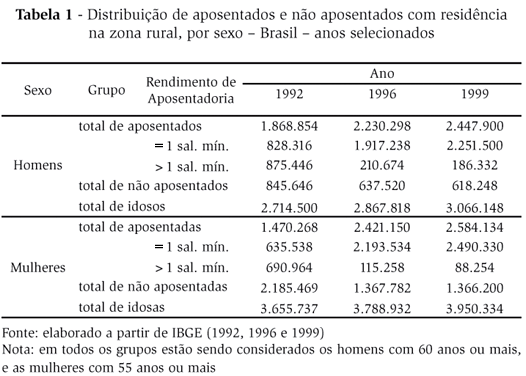This paper evaluates the equality of the Brazilian system of pensions paid in rural areas during the 1990s. The equality implies equal access to the social security benefits, regardless ethnic, sex and education differences among retired persons. Basing on 1988 Federal Constitution, Laws 8,212 and 8,213, both from 1991, have instituted the old age pension equal to one minimum wage for men (60 years or older) and for women (55 years or older) if they can prove they were rural workers. These old citizens can retire without any contribution to the social security system. The new norms were important in rural areas because they guarantee equal rights among men and women and increased the value of pensions. Using 1992, 1996 and 1999 PNAD microdatas organized in tables, this paper pointed out that the social security system contributed for the per capita income growth of elderly retired people who lives in rural areas, without enlarging the income distribution inequality. PNAD microdatas organized in tables also indicate that males, white people, and those with higher formal education had an easier access to pension than females, black people and those with lower formal education. These results were confirmed by the Probit model estimated. The paper finishes with some suggestions to improve the equality of pensions paid in rural areas.
social security; rural area; equality; Brazil












